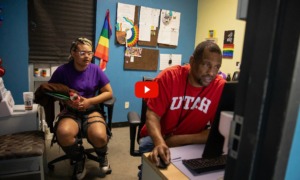 We increasingly hear talk these days about youth engagement, a popular youth-development strategy that has been successful in many places – but that remains underused in many others.
We increasingly hear talk these days about youth engagement, a popular youth-development strategy that has been successful in many places – but that remains underused in many others.
True youth engagement involves young people in the creation of their own destinies. The education and youth-service fields have substantially increased youth-engagement efforts and opportunities in recent years, reaping some wonderful results.
But we need to look at what we’ve learned from those efforts so that we can do better. Too often, adults embrace youth engagement weakly: They conduct a youth survey, hold a summit or appoint a few students to an advisory board. Meaningful youth engagement, on the other hand, is more complex and more beneficial.
We know, for example, that students’ personal engagement in school lines up with student success in school. The Gallup Student Poll – completed each year by hundreds of thousands of 5th- to 12th-graders across the country – repeatedly shows that only 50 percent of students report that they are engaged in school, that engagement declines with each grade, and that engaged students are more likely to get good grades and to graduate.
We also know that involving disengaged students in reforming their high schools increases their personal participation and performance in school. The Funders Collaborative on Youth Organizing looked at the impact of organizing efforts that offered young people of color (who were often not succeeding in school) opportunities to analyze their situations and advocate for improvements. The report, “Building Transformative Youth Leadership: Data on the Impacts of Youth Organizing,” found that those efforts helped to: give the young people a sense of agency in their own lives; build their critical analysis and communications skills; improve their grades; increase their desire to go to college and take college-prep courses; and set them on a course toward lifetime activism and commitment to long-term social change.
Third, we know that older students can successfully mentor younger students. When asked where they’d like to volunteer, college students name educational and youth-service organizations as their top choices. (See “Using College Students as Mentors and Tutors,” by Communities in Schools). High-school students are similarly eager to mentor younger students, as Big Brothers Big Sisters has demonstrated through peer mentoring.
This brings us to our challenge: All this research demonstrates the powerful impact that youth engagement has on individual success. If that’s as far as we go – if youth engagement looks like something that helps only its participants with no benefit to systems, organizations and communities as a whole – then it will continue to live on the edge. It will be seen as good, not essential.
We must make the case that, done correctly, youth engagement can be a strategy for transforming lives, transforming systems and even transforming society. After all, the findings of the Gallup Student Poll tell us that engaged students are more likely to be engaged tax payers. They get more education and higher-paying jobs. That’s a good long-term societal payoff.
The youth organizing study by the Funders Collaborative tells us that engaged students become effective advocates for change. Compared with a comparable national sample of less-involved youth, they log many more hours volunteering for political organizations, canvassing, contacting public officials, staging meetings about issues and engaging in community problem-solving.
Studies of high-school mentors by Public/Private Ventures tell us that young people can be effective mentors when they are well-trained, well-supervised and well-matched with their mentees. Interviews with college students suggest that they can be effective mentors not only to high-school students but also to fellow collegians (especially first-time college-goers), by helping to address the non-academic issues that often lead students to drop out.
So, while youth engagement fosters immediate student success, it also delivers long-term payoffs for other young people and for society as a whole. It’s not just an add-on that makes people feel good for a while. Our school and community leaders need to embrace youth engagement as a necessary component of positive and lasting change.
Karen Pittman is co-founder and CEO of the Forum for Youth Investment, a nonprofit that helps communities make sure all young people are “ready by 21 for college, work and life.”


























